Ethics Hub
Scenario: You witness disrespectful behaviour, bullying or harassment at work
You are making a cup of coffee in the office kitchen. On your way there, you overhear one of the partners, Miranda, discussing a piece of work with a junior colleague, Daniel. You hear Miranda say, “There are several typos and grammatical mistakes in this draft. I imagine they didn’t teach proper grammar in the sort of school you went to”. Daniel is visibly upset by Miranda’s remarks. You speak to Daniel afterwards and offer to raise the matter with Miranda and HR. Daniel asks you not to tell anyone because “Miranda is hard enough to work with already and I don’t want to make it worse”.
What are your obligations in this situation?
- Principle 6 of the Code of Conduct requires Costs Lawyers to treat everyone fairly and equitably, and with dignity and respect. This includes clients, colleagues and third parties.
- Costs Lawyers who are employers are expected to have and adhere to a written policy that prevents discrimination and harassment, and investigate any allegation of non-compliance with that policy.
- If your firm has a bullying and harassment policy, you should encourage Daniel to follow it. You could also encourage Daniel to speak to a trusted supervisor or mentor about the situation, and tell him about services that can help people manage these sorts of situations, such as LawCare.
- Consider what action you can take. When bystanders take action it demonstrates that disrespectful or bullying behaviour is not accepted by the wider workplace. You should record details of the incident as soon as possible, including the names of those involved, the time and location of the event, any other witnesses, and what you heard and saw. It may not be appropriate for you to raise the issue with Miranda yourself, but you should consider speaking in confidence to your firm’s HR team about the situation if you have one, or escalating the matter to a senior person at your firm.
- You should also considering discussing with a senior leader at your firm whether additional anti-bullying and harassment training, and/or diversity and inclusion training for staff, is needed.
- Principle 1.1 – You must act honestly and with integrity, not only in your professional life but also in your private life where your behaviour might reasonably be considered to undermine your adherence to the core ethical principles of the profession.
- Principle 6.1 – You must treat all clients, colleagues and third parties fairly and equitably, and with dignity and respect. You must not bully or harass them, or unfairly discriminate against them (either directly or indirectly) on the grounds of age, disability, race (including colour, ethnic or national origin, nationality and citizenship), sex, gender reassignment, pregnancy and maternity, marital status (including civil partnerships), sexual orientation, religion or belief.
- Principle 6.2 – You must not engage in or facilitate counter-inclusive conduct or harassment which, intentionally or unintentionally, narrows or denies opportunities to people because of their background or characteristics.
